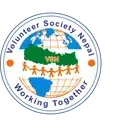Internship
Medical care and Public Health Electives Internship in Nepali Hospitals
Details at a Glance
Start Date
End Date
Payment
Description
Join, learn and contribute to much-needed medical care support in our projects
Medical Internship Nepal program remains one of our most popular at Volunteer Society Nepal. As an Intern in Nepal, you will have the opportunity to observe medical work in a variety of departments.
The Medical Care Situation in Nepal
Good medical care is a serious problem in rural and urban areas of Nepal. A lot of people have moved to Kathmandu after the civil war to seek better opportunities. This has left much of the city’s public medical infrastructure desperately overused. For the poor, seeing a doctor is simply not an affordable option. Meanwhile, in rural areas health facilities are in short supply. The main reasons are a poor transportation network and a lack of funding.
What can an Intern do?
Every internship is tailored to your level of experience and interests. There are options for conducting an internship in the following projects:
1. Health Camps
Health Camps are conducted by volunteers at the schools. With the proper fill-out forms from Volunteer Society Nepal you start conducting checking the health of the kids at the schools. The kids will come out of the classroom 1 class at a time and line up for the health check. You will then be checking the kid’s height, weight, lungs, vision and teeth. Among your findings are often many children with dental issues, some children can be under-weighted and there are children with sight problems. Sometimes you will find more heavy cases, such as infections, skin rashes or even clefts or signs of mistreatment. Depending on your findings, you consult with the school and parents on going to a doctor for treatment or how they can take better care of the children. Depending on your findings you can decide to give a workshop to the classes and schools about health. For example, about healthy lifestyle and food, brushing the teeth or about hygiene.
2. Hospital Rotation
In the hospital, you will be visiting different departments where you can observe the medical care being given. You can talk with the doctors and ask questions. After some days, you will choose one department where you can help the rest of your time. Once you have gotten to know the doctors and nurses and established a good relationship with them you can help with the patients and exchange your knowledge and skills with them. Please note that what you can do within the hospitals is dependent on the relationship-building you do with the doctors and nurses and the amount of time you have. The hospital requests that you spend a minimum of two weeks. We will do our best to place you according to your preferences, but cannot guarantee every department will be available.
Most hospitals have the following medical departments:
- General Medicine
- Obstetrics and Gynecology
- Infectious Diseases
- ENT
- Neurology
- Pneumatology
- Oncology
- Urology
- Orthopaedic
- ICU
- Ophthalmology
- Stomatology
- Emergency (requires at least 6 years medical training)
- Surgery (requires at least 3 years medical training)
- Burn and Plastic Surgery
- Community
- Medicine
- Pediatrics
3. Workshops
At our schools, the disabled centres and the women’s centre, the children and adults would love to learn more about health issues, healthy lifestyles, and first aid and hygiene. You can develop medical workshops and give these workshops to them in such a way that it will help them in their overall health and well being. Together with the Volunteer Society Nepal staff you will conduct a need analysis on where knowledge is lacking and prepare and give the workshops. It is great if you can use new technology such as YouTube videos and Powerpoint presentations for the workshops.
4. Health Clinics
In many remote areas, there are no hospitals and therefore the first place that people go to are health clinics. Generally, this is a small facility with a small pharmacy included where there is one doctor or nurse. Health clinics are often open in the early mornings and late afternoons only. You will be talking with and getting to know the doctor and nurse. Once you have gotten to know the doctors and nurses and established a good relationship with them you can help with the patients and exchange your knowledge and skills with them.
Your role as a Medical Internship Nepal
As a Medical Intern, your role will vary depending on your education and experience. At the hospital, you will begin by shadowing the local Nepali staff. When you show enthusiasm and develop a good relationship with the doctors and nurses, you will be rewarded with more responsibilities. The hospital’s facilities are basic and the treatment standards will probably be different from what you’re used to. You should be prepared to see some shocking cases and try not to get emotionally involved with the patients.
Do I need any qualifications or skills to do this work?
All Medical Internship Nepal Elective Interns in Nepal must have completed at least one year of medical studies or training.
Check out the experiences from some of our volunteers
- Medical students from University of Leeds, UK share their volunteer experience
- A Medical Elective student from University of Adelaide, Australia volunteer at a hospital in Nepal:
Join, learn and contribute to much-needed medical care support in our projects
Medical Internship Nepal program remains one of our most popular at Volunteer Society Nepal. As an Intern in Nepal, you will have the opportunity to observe…
Benefits
Location
Kathmandu



